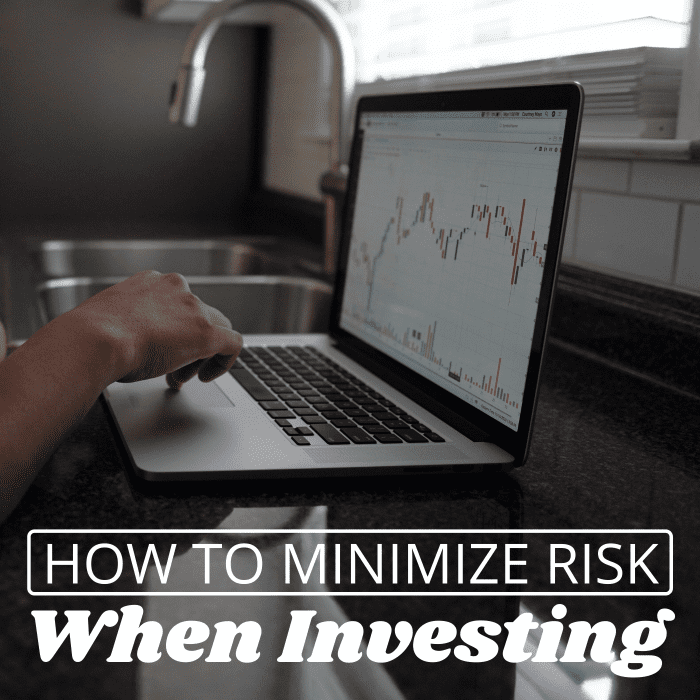Will I Lose Money With Commodity Rollover
Andrew is a self-educated business owner and entrepreneur with plenty of free advice (which is worth exactly what you pay for it!).

Investing safely could earn you more money over time than investing opportunistically.
MayoFi via Unsplash; Canva
More people have started buying stocks since the coronavirus pandemic began than at any other time in history. This means there's a great deal of money floating around in the market, and there are a lot of new ideas competing for space in today's stock landscape.
With so much new money chasing around yield in a world where safe, reliable returns seem to be harder and harder to find all the time, how can you invest and still keep your money safe? The answer may surprise you, and it has a lot to do with not doing something incredibly stupid.
Charlie Munger on Success
Berkshire Hathaway vice-chairman Charlie Munger has a special place in every value investor's heart. After starting his on incredibly successful investing career, Munger became instrumental in nudging Buffett away from the cigar-butt style of investing (through which Buffett found companies that were so cheap that they had that "one last puff" of income to extract and an absurdly high margin of safety) and toward investing in higher-quality companies selling at fair prices.
However, if you ask Charlie why Berkshire has been successful over the last six decades, he's likely to point to something that might be surprising the first time you hear it: "They were careful not to do anything terribly stupid." This response might seem cheeky at first, but Munger means it—avoiding doing foolish things has been a mantra for the Buffett-Munger partnership, and the results are astounding, with a 20% annual return across nearly six decades.
Buffett often jokes about how many times Charlie says "no" to an investment idea, calling him "The Abominable No-Man." He also reminds us often in his letters to shareholders that, while in baseball, you have to swing at a pitch if you already have two strikes, there are no called strikes in investing. This means you don't have to invest in anything you don't feel amazing about.
Taking Care of the Downside
When I first dove into buying individual stocks in early 2020 after years of dollar-cost averaging in index funds, I had no idea that I was walking into the most volatile year in the market's history. Luckily for me, I had a mentor, Tom, who helped me navigate my personal understanding of what was going on out there, and I quickly learned about risk management through trials by fire.
At first, I was essentially placing contrarian bets on a particular outcome, like taking a look at how quickly Carnival had dropped at the beginning of the pandemic. However, contrarianism alone will only take you so far. What I needed to do was to apply Munger's rule number one (don't do anything incredibly stupid) to buying stocks and to listen to Tom as he coached me through an understanding of diversification and risk management.
Read More From Toughnickel
Instead of picking pandemic winners, I started thinking about stocks that would perform well no matter what. If a particular outcome happened, I might do much better, but if the outcome never materialized, I'd still be just fine. In other words, take care of the downside, and the upside will take care of itself.

The best way to minimize risk when investing is to focus on the downside.
A Real-Number Example
This bias toward risk-aversion has the surprising benefit of being your best way to achieve consistently good returns over a longer time horizon.
Let's take a really, really simple case where we have a two-year time horizon, and year one is a raging bull market, while year two is a bear market. Imagine an aggressive investor—let's call her Aggro Addie—who starts with $10,000 in the market at year one and then has a banner year in the market, finding phenomenal buys and hitting a 70% return.
Year two starts with $17,000 invested, and Aggro Addie's year isn't so phenomenal. The sector changes, and our hero has a loss. Lucky for her, it's nowhere near that 70% number; her portfolio goes down 40%, leaving her with $10,200 after year two.
Meanwhile, a different type of investor—let's call her Steady Stella—puts $10,000 to work. Stella isn't chasing returns, and she doesn't really care about beating the market every year or bringing in record numbers over any particular stretch of time. Instead, she's focused on making sure she doesn't lose money.
Stella invests in year one and hits a steady (but boring) 20% return, earning her $12,000. Although it's painful to watch her friend Addie outperform her by $5000, year two arrives, and market sentiment turns somewhat negative, so Stella's return drops to zero, leaving her with $12,000. After one bull year and one bear year, our steady investor has outperformed her competitor by 18%, and this number gets even more dramatic after additional years pass.
Buffett's Top Two Investing Rules
There's a reason Warren Buffett's top two rules of investing are the same—don't lose money. It's because this is the best way to ensure the highest return over time. Allowing your money to sit uninvested would also seem to minimize catastrophic losses, but over time, you're all but guaranteed to lose money if you don't invest it since inflation will eat away a certain percentage of a pile of cash by making it less valuable.
Since you need to be in the market in order to shield yourself against a loss of capital, focusing on preventing big losses is your best strategy as an individual investor. Invest carefully, don't chase returns, and don't feel obligated to swing at any pitches you don't like. Over time, your portfolio is likely to outperform most others if you can just resolve not to have any big losses. Happy investing!
This article is accurate and true to the best of the author's knowledge. Content is for informational or entertainment purposes only and does not substitute for personal counsel or professional advice in business, financial, legal, or technical matters.
© 2021 Andrew Smith
Will I Lose Money With Commodity Rollover
Source: https://toughnickel.com/personal-finance/How-to-Not-Lose-Money-in-the-Stock-Market
Posted by: pinsonsair1976.blogspot.com

0 Response to "Will I Lose Money With Commodity Rollover"
Post a Comment